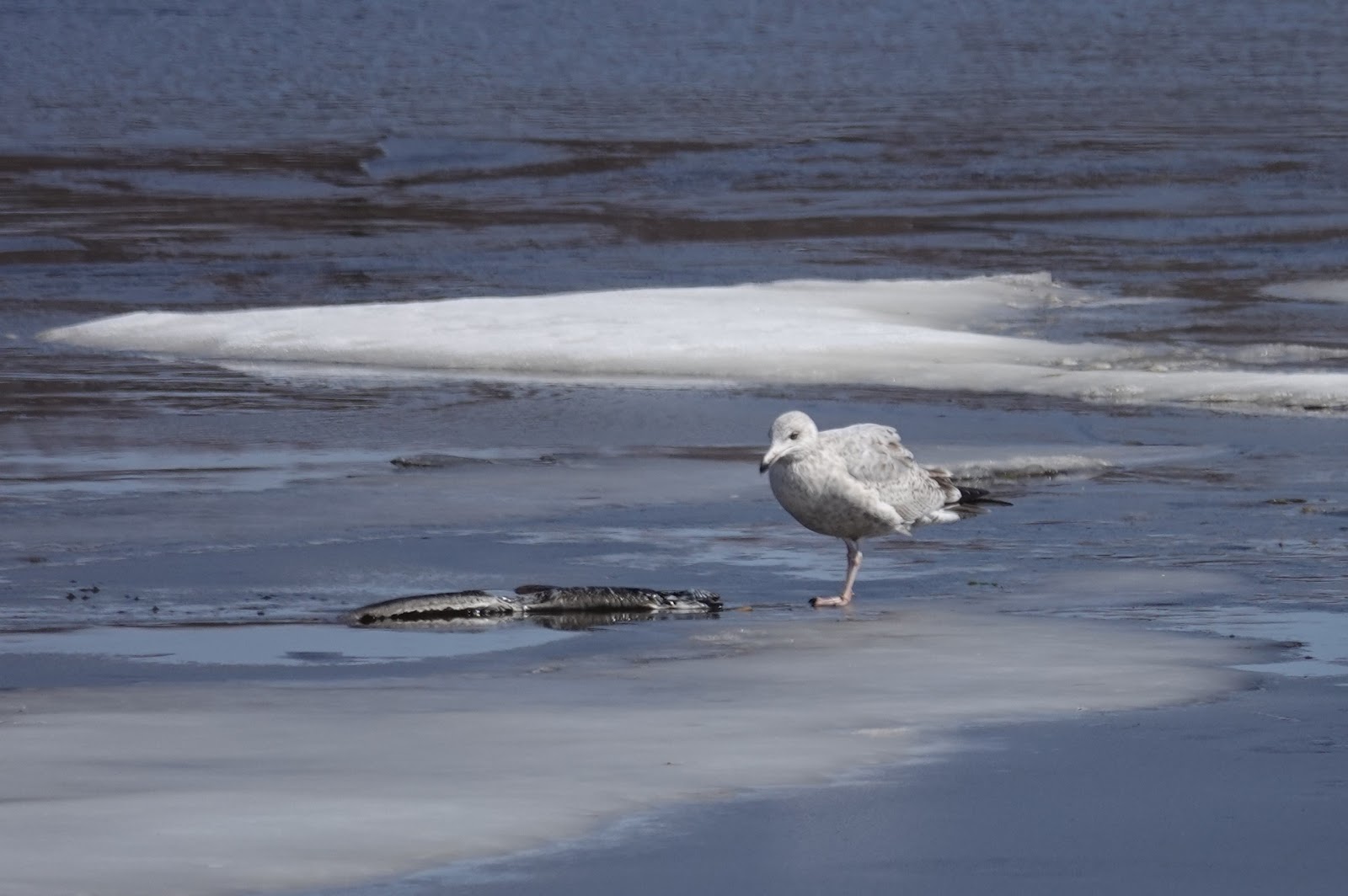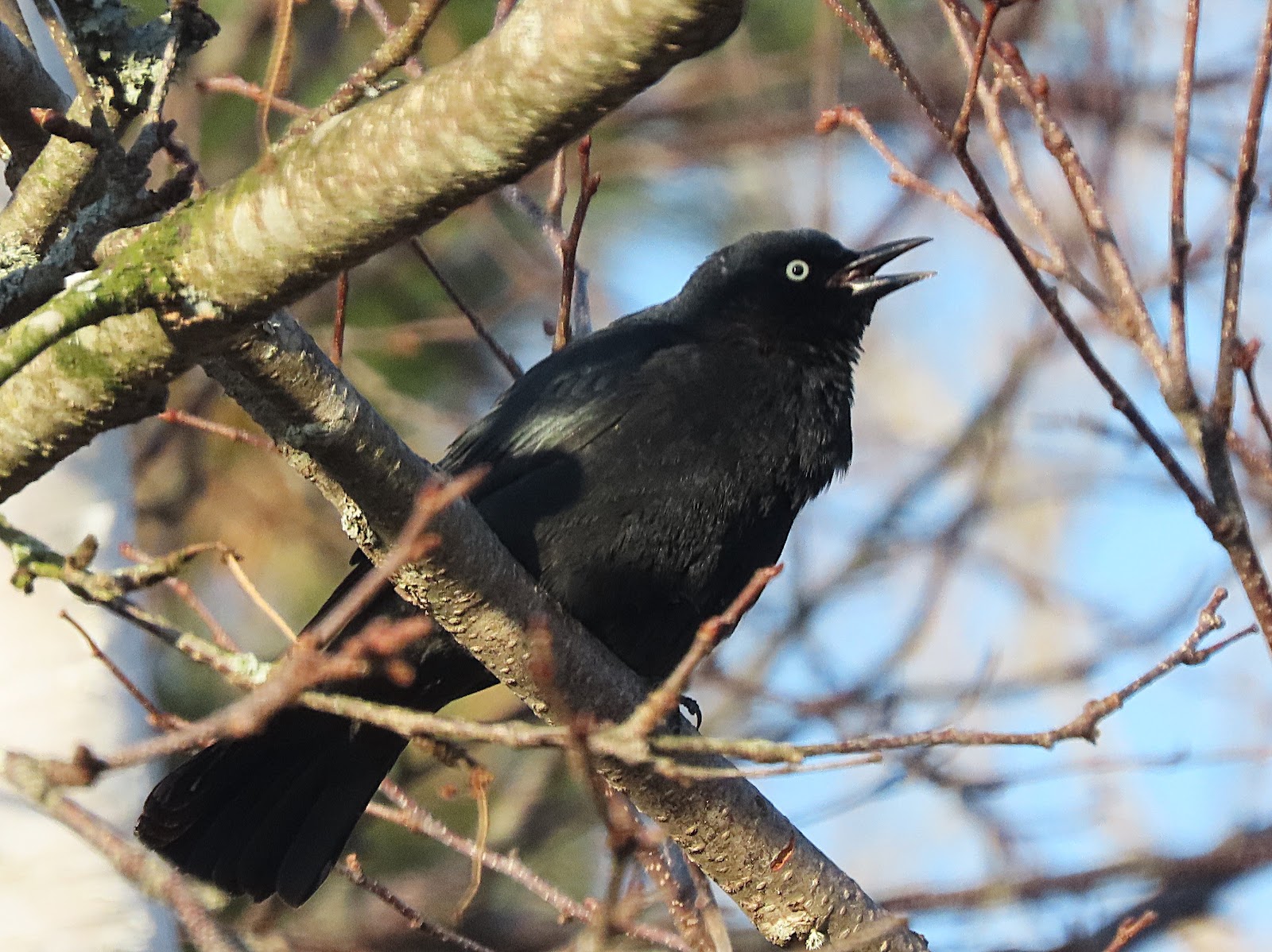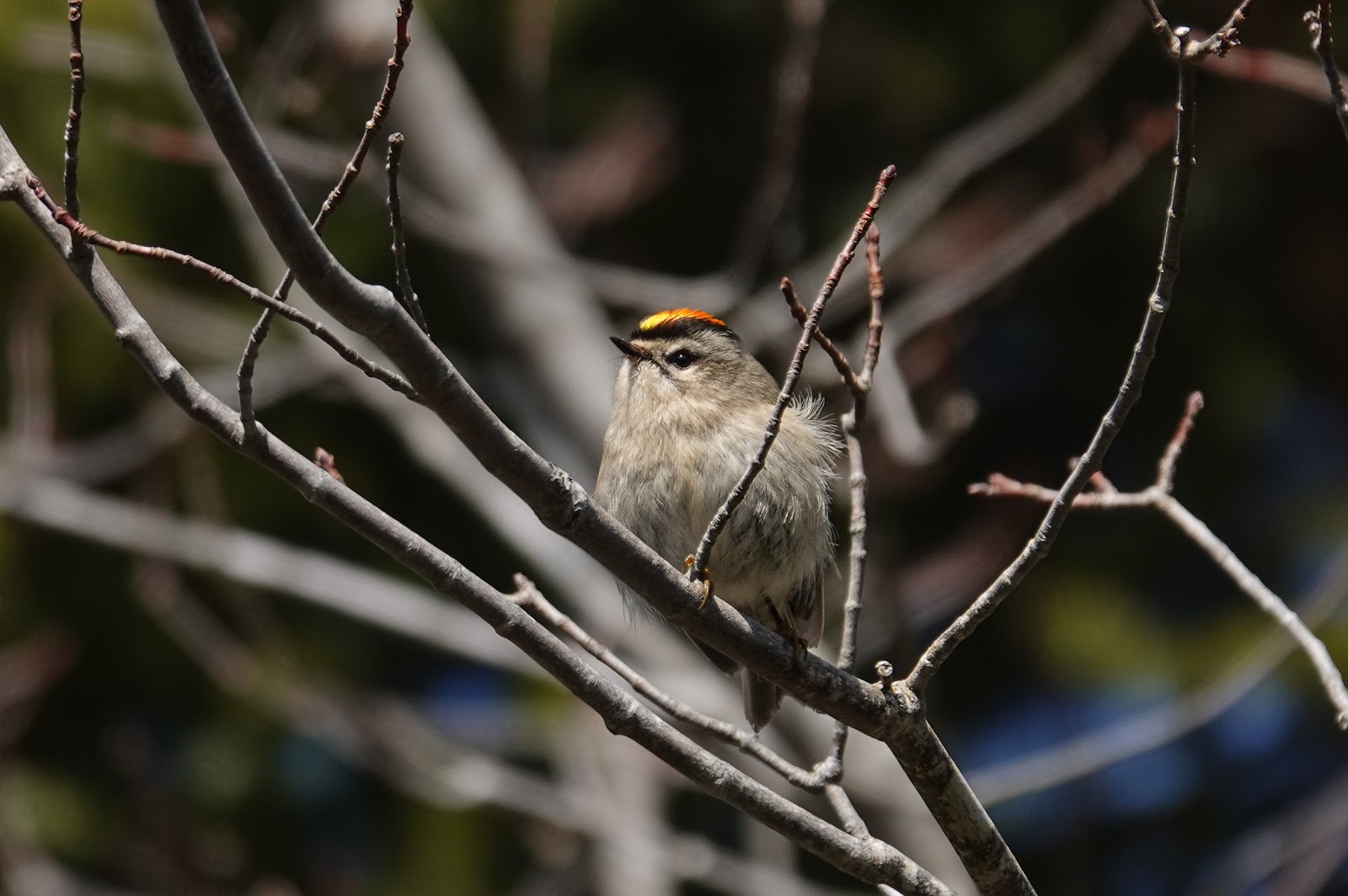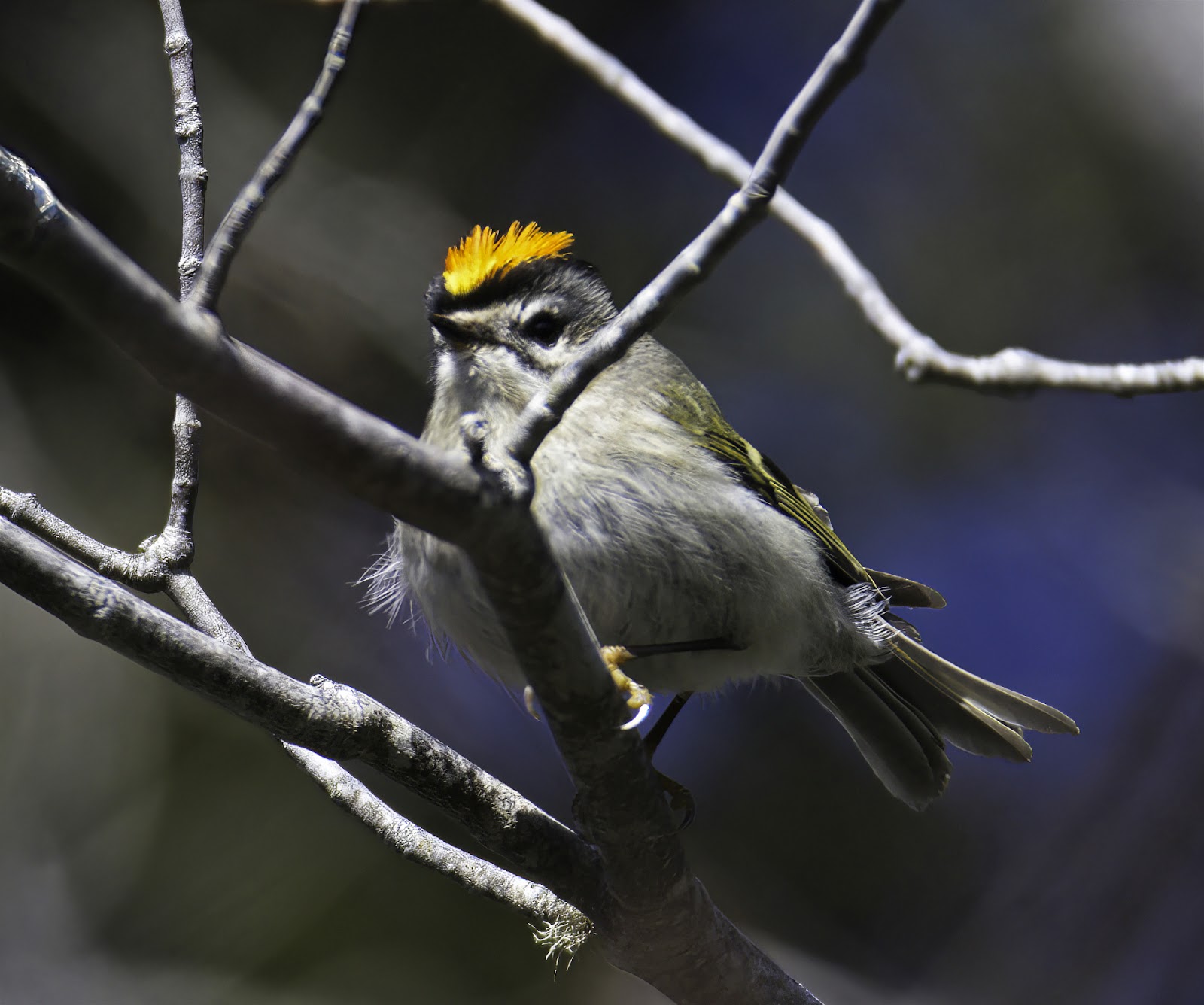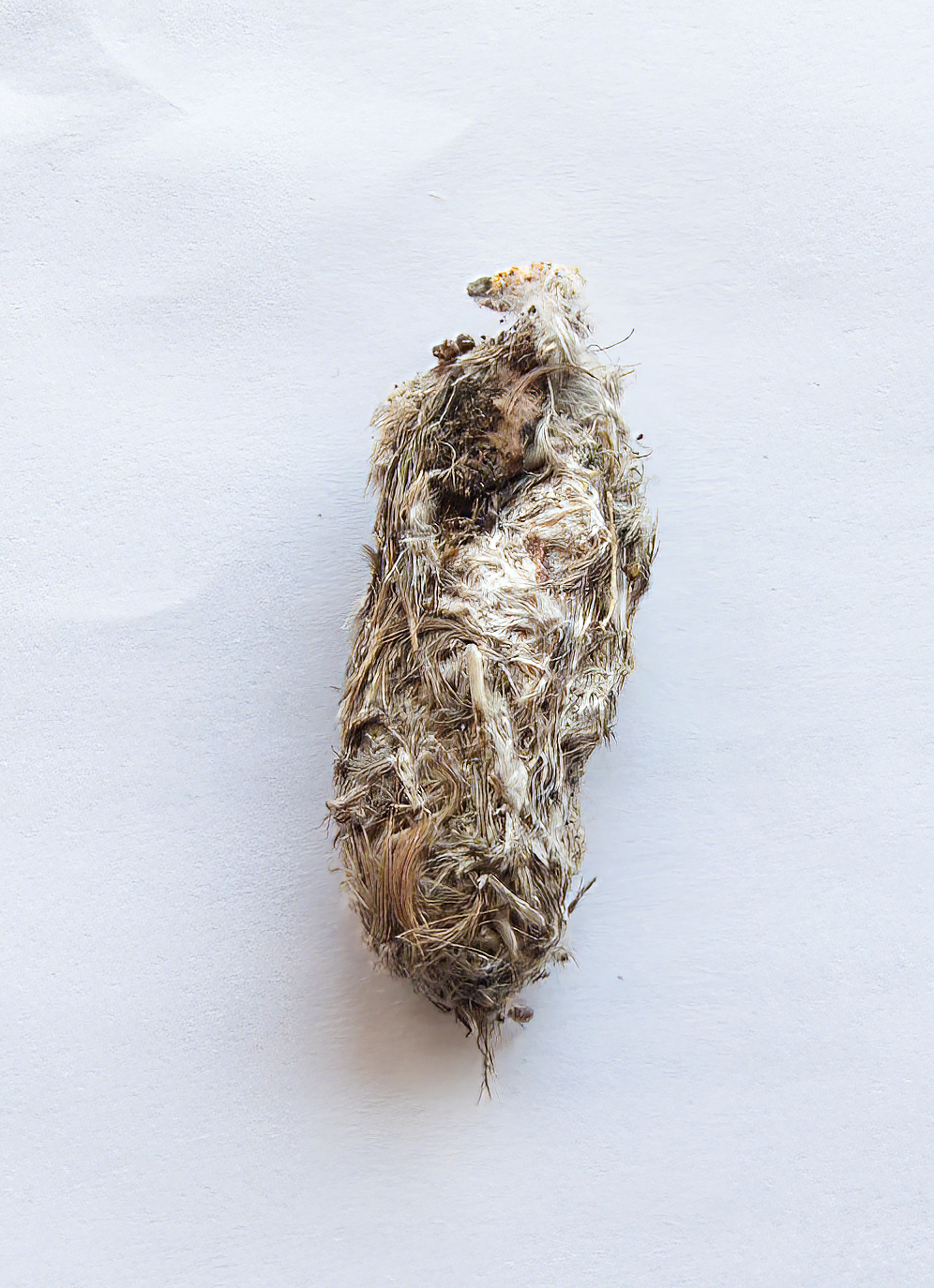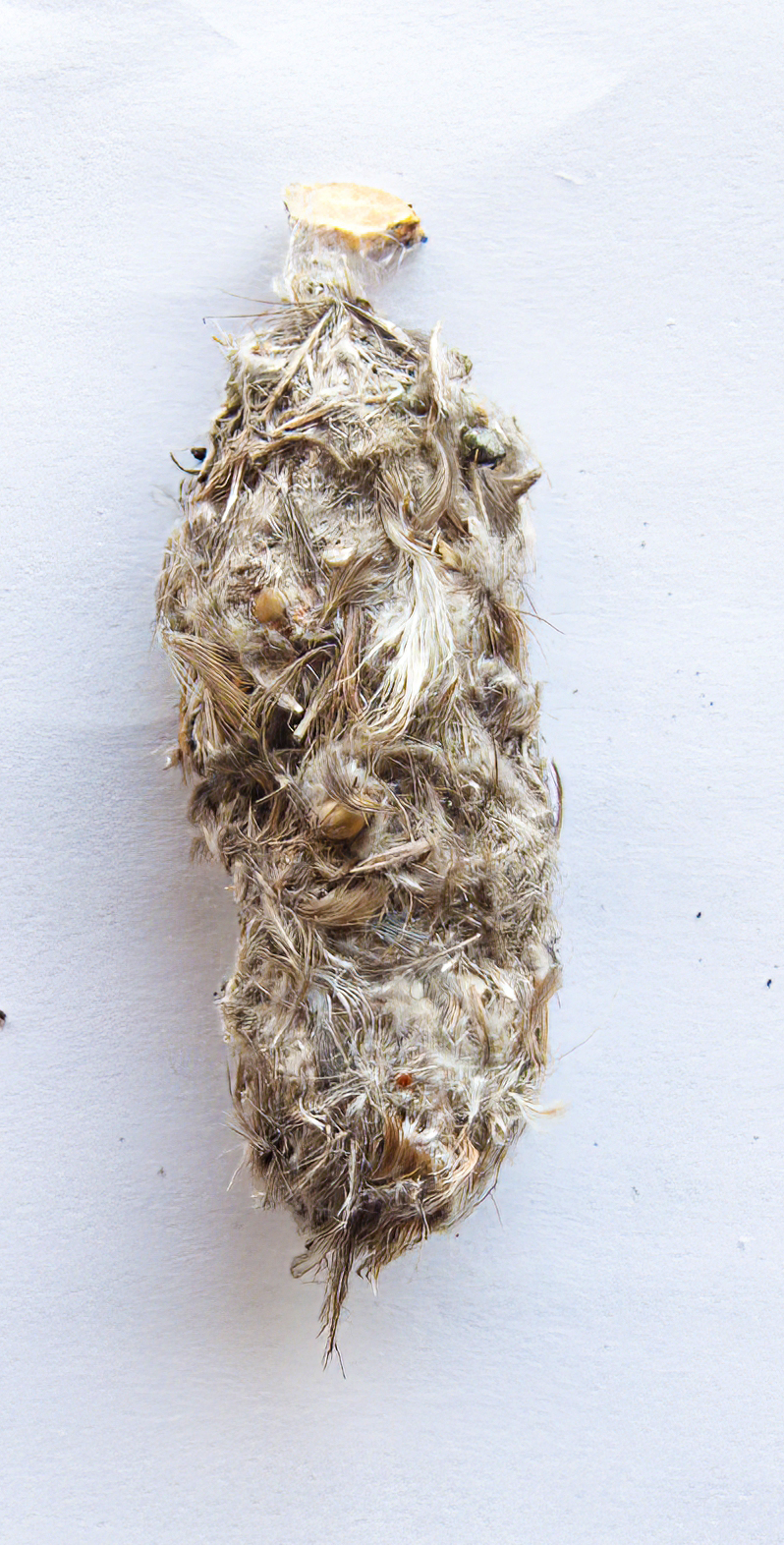NATURE
MONCTON NATURE NEWS
April 3, 2025
Nature Moncton members, as well as any
naturalist in New Brunswick or beyond, are invited to share their photos
and descriptions of recent nature sightings to build a fresh (almost) daily
edition of Nature News
To
respond by e-mail, please address your message to the information line
editor, nelsonpoirier435@gmail.com .
Please advise the editor
at nelsonpoirier435@gmail.com and the proofreader Louise Nichols
at Nicholsl@eastlink.ca if
any errors are noted in wording or photo labelling.
For more information on Nature Moncton, check the website
at www.naturemoncton.com.
Proofreading
courtesy of Louise Nichols
**Shannon Inman was able to capture some excellent photos through the woods, including one of an American woodcock and another of a male ruffed grouse putting on its stunning mating display which is certain to capture the attention of any nearby female suitor.
John Inman’s ‘flock’ of rusty blackbirds continues
to swell and is now showing arrivals appearing in their breeding plumage that is quite different from their winter plumage (which many would consider
more attractive). It is notable that the Inman’s feeder yard can attract significant
numbers of rusty blackbirds, a bird that is in significant decline.
**Richard Blacquiere found a presumed female duck yesterday afternoon at the Hampton Lagoon that appeared to have in-between characteristics of a mallard duck and an American black duck. It was near a pair of typical mallard ducks but stayed by itself. It was mallard-sized, with relatively dark plumage overall and an olive bill with a dark center. It's hard to see, but Richard thinks the belly was dark as well. The white bars on either side of the bluish speculum look too restricted for a mallard duck but would be out of place on a black duck. Richard is tentatively suggesting a female mallard x black duck hybrid but would be interested in hearing other opinions.
**Louise Nichols sends a photo of a red-breasted nuthatch and a golden-crowned kinglet that she took on Wednesday morning while exploring a trail off Walker Rd. in Sackville with Brian Stone. They hoped to see a boreal chickadee, but not many birds were out and about in the cold temperatures and brisk wind.
Louise also attaches a few
photos she took at Point-du-Chene last month. One shows a herring gull with
fish as its prey. Another photo is of a male mallard-black duck
hybrid.
(Editor’s note: Louise’s herring
gull photo provides interesting fodder. It is in molt to its next phase, and so could be a late 1st-winter bird as it is showing a lot of brown with a
receding black bill. However, the second photo shows a yellow eye, which would
be more consistent with a 2nd-winter bird. Only the bird knows for sure. To
add to that, the guides state that variability comes into play at this stage of
molting.
The second interesting point
is the bird's prey, which is a fish that we very seldom see. After consultation
with Alyre Chiasson, we believe it to be an ocean pout, a species neither of us has seen in the wild. However, it is not an uncommon bottom-dwelling fish, eel-like in appearance, that can survive in near-freezing waters. It is found
off the coast of New England, extending eastward to eastern Canada, which
further increases the possibility.
Any other thoughts would be
appreciated.)
**Brian Stone sends a few photos from the Sackville and Cap-Pele areas. Several red-breasted nuthatches and golden-crowned kinglets were present in the woods outside Sackville, and common eiders were close enough at wharves in the coastal waters of the Cap-Pele region to show well in photographs. The temperature was not that low, but the high winds made it feel even colder. Louise Nichols braved the chill to join Brian on parts of his outing but was not rewarded with any special sightings. Hopefully, next time will be better.
**Yesterday’s query about experience/ information on the use of butterfly boxes was answered by butterfly guru Rheal Vienneau. His response is quoted below:
“In my humble opinion, butterflies in our
neck of the woods will not enter butterfly boxes, and my experience with them
confirms this. In nature, butterflies seek
shelter in trees, under heavy foliage, and in thick grass. They will seek shelter from rain, wind, high
temperatures, bird predators, etc.
Butterflies will also shelter for the night in these same areas.
I believe butterfly boxes are too much of an
unnatural means for butterflies to use them for shelter.”
**Recently, when completing the work on the peregrine falcon
nest box on the summit of Assumption Place, some weathered regurgitated
pellets were noted. We often think of these pellets as being from an owl,
but many raptors and some other birds also regurgitate pellets. In this
scenario where the pellets were found, regurgitated pellets from the falcons
would be assumed.
Don McAlpine from the NB Museum confirmed that possibility and I am quoting his helpful response below:
“Any
owl pellet I have seen had bones in it, frequently entire lower jaws and near
entire crania of small mammals, along with various long bones, individual
teeth, etc. Hawk pellets do contain
bone, but it is typically broken or crushed.
One does not find whole crania in hawk pellets, in part due to the
feeding method (tearing food versus swallowing whole) and the nature of the
digestive system (less efficient in owls). Given the nature of these pellets
(mainly feathers? Entirely feathers?) and the location (peregrines in the
area), I would agree that falcon
seems like a more likely source.”
**Many senior New Brunswick naturalists will
have
fond memories of the times they spent with
Hilaire and
Rose-Aline Chiasson, a couple from Lamèque,
who started the Acadian Peninsula Naturalist Club.
Hilaire passed away on March 29, with
Rose-Aline having predeceased him. Hilaire’s obituary can be found at the link below:
https://www.hommagenb.com/obituaries/hilaire-chiasson-1940-2025-pointe-alexandre/
Nelson Poirier.
Nature Moncton





